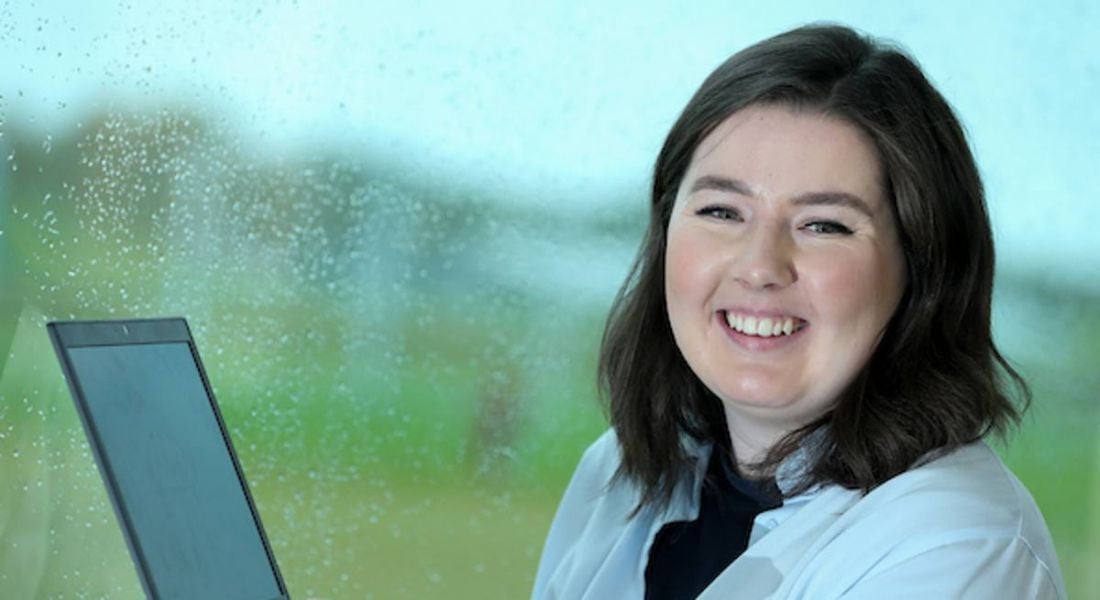Caoimhe Nolan, business analyst in Takeda, describes a typical day in her job and the types of projects she is working on.
What’s it like to work on-site in the business hub of a new pharma facility and what are the most important skills needed? Caoimhe Nolan, a business analyst at Takeda in Dunboyne, gave us some insights into her role.
‘Having a keen interest in problem-solving and learning new things is key to this role’
– CAOIMHE NOLAN
What’s your role within Takeda?
As a business analyst, I sit within its business excellence hub, but flow to the work with each of the hubs and self-directed work teams at site as needed.
My role involves reviewing and interrogating the systems we use to identify best practice and opportunities for streamlining our processes.
If there is such a thing, can you describe a typical day in the job?
Each day is different with new challenges and lots of opportunities to learn. My work varies with day-to-day activities, as well as involvement in various projects. A lot of the work we do is driven by where in the business we are needed.
To help the team plan and prioritise our deliverables, we have identified key systems that are live or are going live this year in line with our site IT roadmap. Different business analysts have been assigned to each system to help focus our efforts in the right places.
With this approach, it’s important that we as a team stay aligned to ensure we deliver in line with our enterprise approach. The main output from working with each of the systems is to build our data visualisations in line with the business needs to help drive performance at the site.
What types of project do you work on?
Since joining Takeda, I’ve had the opportunity to support various projects from Digital 4.0, which focuses on how we can embrace new technologies and opportunities for digitisation, to a project about building our data visualisation platform to support our KPIs.
My role here involves the standardisation of our master data to ensure we can support any system interfaces that are needed.
I’m also involved in the implementation of our enterprise resource planning system here on site, which is a great opportunity to learn about the biologics process and how our material flows end to end throughout the site.
What skills do you use on a daily basis?
I use a range of skills daily, but in this role people skills are just as important as technical skills.
As part of this role I work with every aspect of the site, helping users get up to speed on our systems and working with the end-users to develop new ways of doing things.
Having a keen interest in problem-solving and learning new things is key to this role.
What is the hardest part of your working day?
Often the hardest part of the working day is prioritisation of work.
With a mix of daily activities and project work, I’m learning to manage short-term goals while also ensuring project work and longer-term goals are achieved.
Do you have any productivity tips that help you through the working day?
I always have a to-do list but am learning that without a timeframe added to each task, things don’t always get done.
I use several tools such as Outlook and OneNote to manage my workload into tasks, and a key learning has been to clear out your inbox at the end of each day. Taking 10 minutes at the end of the day to do this can have a big impact and help clear out your mind for the next day.
When you first started this job, what were you most surprised to learn was important in the role?
Collaboration and communication are key to a role like this – as a new site, we are still developing processes and ways of working, and as we take one approach to how we work, it is vital that we are all working together.
The tier board structure really helps and enables this approach and ensures we’re not working in silos.
How has this role changed as this sector has grown and evolved?
I think in a role like this it’s important to be constantly learning and upskilling. As new technologies become available, it’s important to understand how we can utilise them to make our systems and processes on site more efficient and streamlined.
It’s also just as important to know where technology can help and add value, or where it could potentially hinder a process.
What do you enjoy most about the job?
I really enjoy having the opportunity to learn each day, not only about the systems we use, but also about the industry we work in and the patients we help.
There’s a big focus on the patient here and that really helps me to focus on the bigger picture of what we are trying to achieve.




